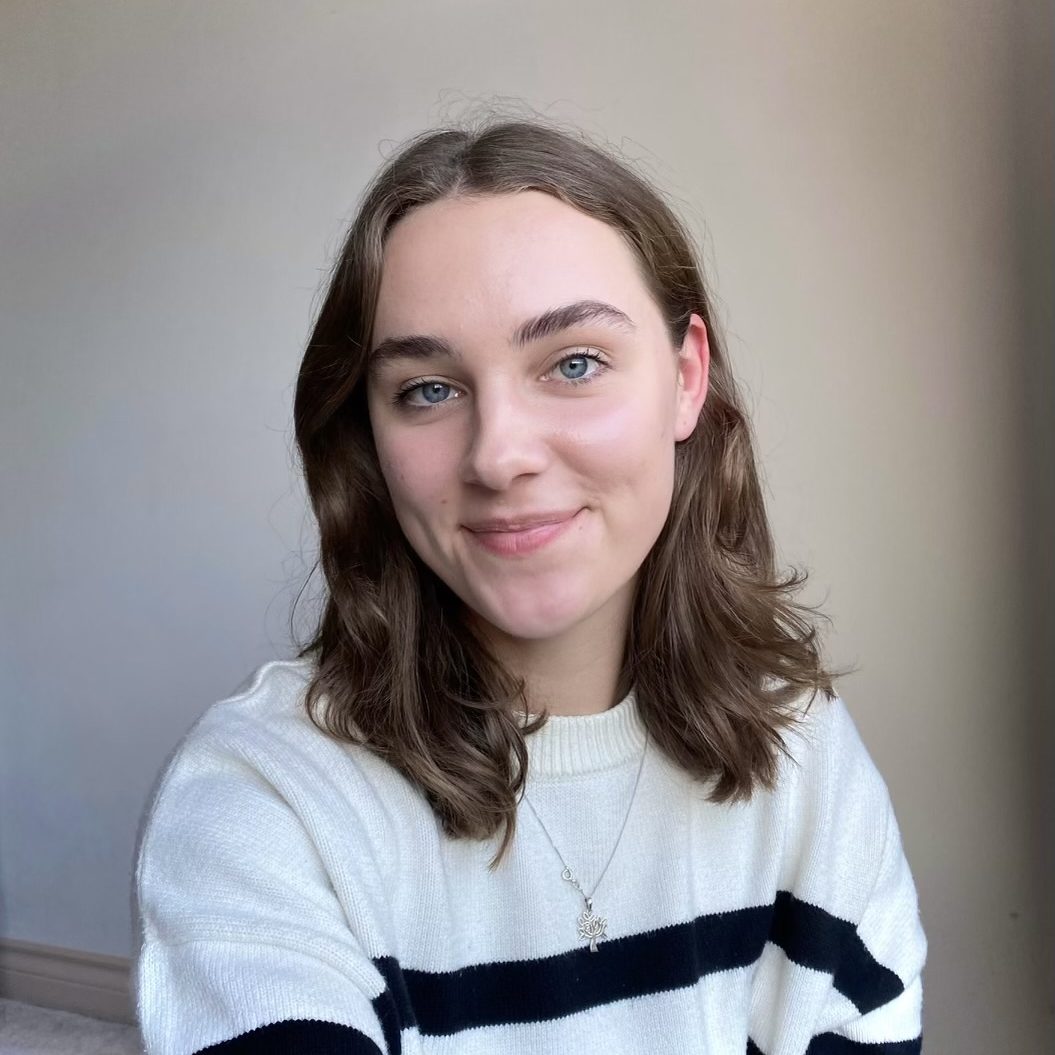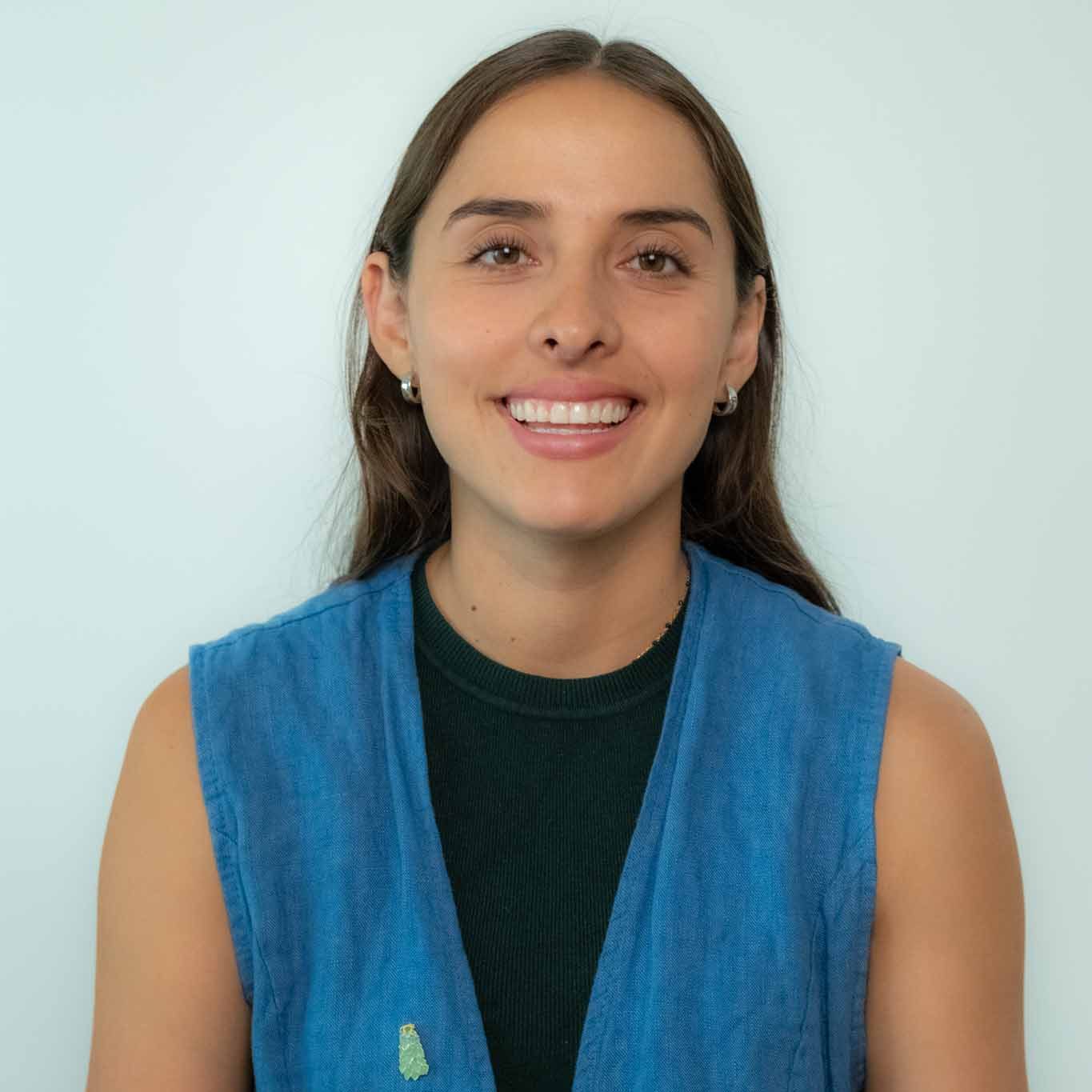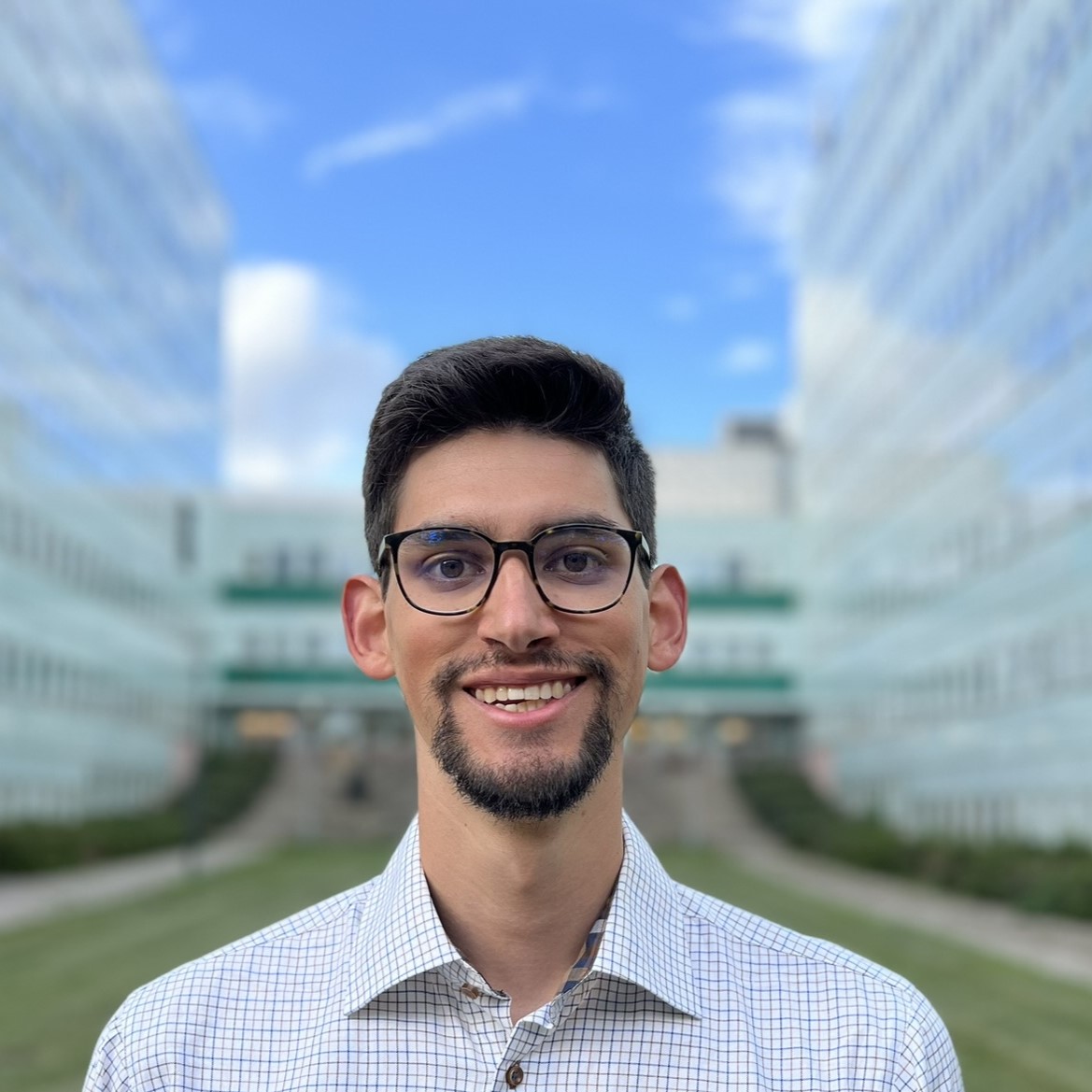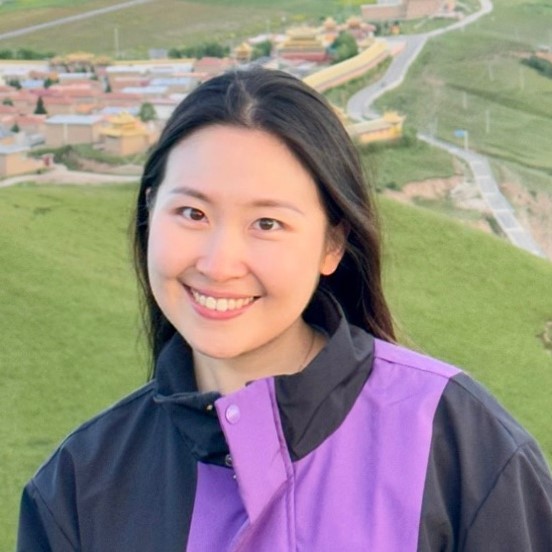Annabel Van Eeten

Annabel Van Eeten
MSc Student
Contact Details
at [dot] vaneeten [at] outlook [dot] com
Bio
Annabel is an MSc student in the Institute for Resources, Environment and Sustainability, co-supervised by Dr. Stephanie Chang and Dr. Kees Lokman. Her research interests are broadly centered on the role and effectiveness of nature-based solutions in enhancing disaster resilience and reducing community vulnerability, particularly in urban and coastal environments.
Prior to UBC, Annabel completed a BSc in Geography at Loughborough University in the UK. Her undergraduate dissertation investigated the synergy between the nocturnal urban heat island effect and nighttime heatwaves across different local climate zones in London.
In her free time, you will often find Annabel playing sports, exploring the outdoors, trying new recipes, and travelling!
Renata Rovelo Velázquez

Renata Rovelo Velázquez
MA Student
Contact Details
https://www.linkedin.com/in/renata-rovelo-111ba311a/
https://www.squamish.net/community-initiatives/climate-strategy/
rovelov[at]student.ubc.ca
Bio
Renata Rovelo is a MA student at the Institute for Resources, Environment and Sustainability, under the supervision of Professor Leila Harris. As a member of the EDGES Research Collaborative, her research explores the non-material dimensions of water for Indigenous peoples, with a particular focus on the Squamish People.
Renata also serves as the Climate Action Strategy Manager for the Squamish Nation, bringing over 10 years of experience in climate policy and environmental justice. In previous roles, she worked at the Mexican Stock Exchange as the Commercial Coordinator for the voluntary carbon market and at the Organization of American States in Washington D.C., where she liaised with civil society on environmental justice initiatives.
In her free time, Renata plays drums in one band and guitar in another, trains for marathons, practices yoga, and tries to meditate daily.
Evan Eskilson

Evan Eskilson
PhD Student
Bio
Evan is a PhD student at IRES under the supervision of Dr. Hannah Wittman. His research is focused on the trade-offs associated with high levels of specialization within farming systems. In particular, he is interested in exploring how crop diversification and other farm-level agroecological practices can increase farmer control over decision making, allowing farmers to become more sustainable, profitable, and culturally representative. More broadly, he hopes to influence how people think about specialization, and encourage individuals to pursue more diverse areas and types of knowledge, as well as experiences so they may better address complex problems. Evan is from Lawrence, Kansas and moved to Cincinnati, Ohio to study his bachelor’s in economics at the University of Cincinnati. After graduating in 2022, he began a masters in Global Political Economy at Stockholm University, writing his masters thesis on changes in crop diversity in Swedish agriculture in response to changes in extreme weather. Throughout his education he has worked in a variety of companies and NGOs including the Exponential Roadmap Initiative where he developed guidance for corporate climate transition planning.
October 24, 2024: IRES Professional Development Seminar with Helen Brown
Too Little, Too Much, Just Right: Navigating Information and Research with UBC Library
Location: Beaty Museum Allan Yap Theatre (Basement, 2212 Main Mall). Please check in at front desk on main floor before going downstairs.
No food or drinks allowed in the Theatre.
Time: 12:30pm to 1:20pm
There is no recording for this seminar.
Talk summary:
Join us to learn more about UBC Library services and tips and tricks for finding environmental research and information that will save you time and energy. Bring your questions and find out more about anything from where to find Lego in the Library to how to publish a paper! The session will adapt to the questions and interests of the group but might include an intro to services and resources available at UBC Library and tips for finding the right research

Bio:
Helen is a librarian at the University of British Columbia’s Woodward Science Library, where she works with researchers and learners in environmental and biological sciences, including IRES. Helen’s research interests include climate action in libraries and knowledge synthesis methodologies. She also has a background in archives and rare books, and previously worked as a librarian in health and medicine.
Yoshinori (Yoshi) Tanaka

Yoshinori (Yoshi) Tanaka
MSc Student
Bio
Yoshi has been keen to learn deeply about the connection to his ancestral roots and culture in an old village in Aichi Prefecture, Japan. He has been studying socio-ecological issues that the village is facing due to modernization. He is particularly interested in reawakening the abandoned traditional coppicing and charcoal making process, which was the occupation of his late grandfather and the ancestors before him. He has been chasing the traces in the forest, such as coppiced trees, Japanese red pine snags, and the hand-built kiln. He has also been asking the elders what they remember of his grandfather practicing before the fossil fuel revolution. He believes that coppicing and charcoal making has been the heart of ecosystem maintenance, and reintroducing these practices will contribute to revitalization of the culture and forest of his village and regional ecosystem health that is connected and spread downstream.
His recent month-long visit to Masset, Haida Gwaii inspired him to look into the ancient connection between Japan and northern Haida Gwaii, intended and accidental cultural exchange of the seafarer peoples – expanding his mind from his personal roots to the Pacific Rim cultural connection.
Professional details
Three-Tree Project Society (NPO)
Incorporation Number: S0080525
Business Number: 73155 1354 BC0001
Position: Technical Director
ITA (SkilledTradesBC) Certified Arborist Technician
Photographic darkroom operator
Yunfei Li

Yunfei Li
PhD Student
Contact Details
yunfei.li[at]ubc[dot]ca
Bio
Yunfei Li is a PhD student at IRES under the supervision of Dr. Simon Donner in the Climate and Coastal Ecosystems Lab. Her research primarily focuses on climate change engagement, aiming to better understand how individuals and communities perceive and react to climate change impacts and exploring the influential drivers. More broadly, she is interested in studying people’s attitudes and behaviors towards environment and sustainability, in order to effectively engage diverse audiences in coping with complex socio-ecological challenges we currently face.
Yunfei is from Beijing China, where she completed her Bachelor degree at Tsinghua University in 2020, majoring in Environmental Engineering. She then received her MSc in Environmental Health from Harvard T.H. Chan School of Public Health. Before coming to IRES in 2024, Yunfei worked as a sustainability engineer in Schneider Electric China to drive end-to-end supply chain sustainable transformation with innovative strategies.